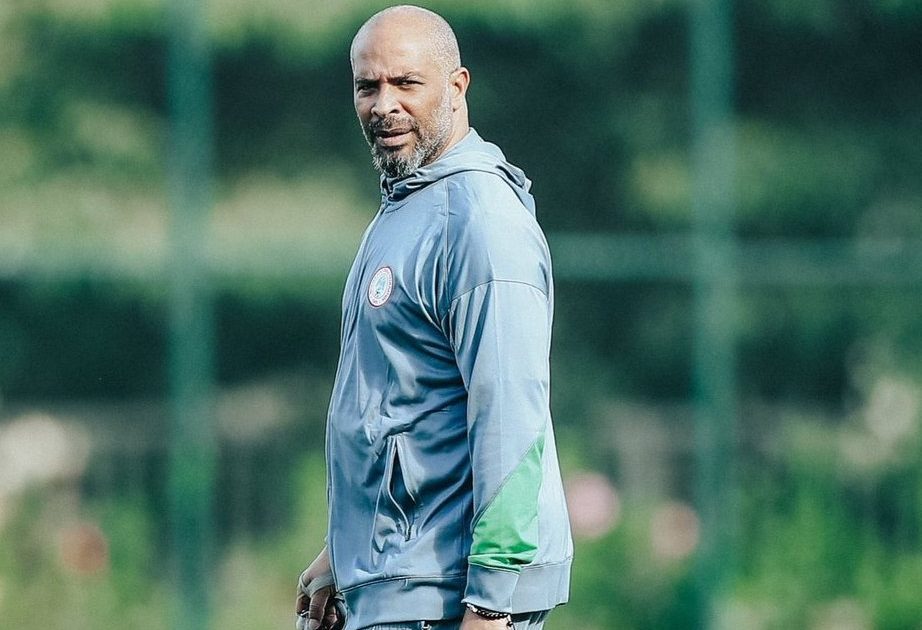Paragraph 1: A Blend of Talent: Chelle’s Strategic Squad Selection
The Nigerian football landscape is abuzz with anticipation as Super Eagles head coach, Eric Chelle, unveils his 25-man squad for the upcoming 2025 Unity Cup in London. This tournament, scheduled for late May at the Gtech Community Stadium, will see Nigeria lock horns with Ghana in the semi-finals, followed by either the final or the third-place match. What distinguishes this squad selection is Chelle’s strategic decision to integrate a significant number of Nigeria Premier Football League (NPFL) players alongside their foreign-based counterparts. This move, featuring 10 home-based talents, has sparked widespread discussion and drawn parallels with the successful approaches of legendary Nigerian coaches like Clemens Westerhof, Stephen Keshi, and Bonfrere Jo.
Paragraph 2: Echoes of the Golden Era: A Nod to Past Successes
Chelle’s inclusive strategy resonates with the philosophies employed during Nigeria’s footballing heyday in the 1990s. Westerhof, Keshi, and Bonfrere Jo were renowned for effectively blending domestic talent with international stars, creating a powerful and cohesive national team. This approach not only strengthened the overall squad but also provided a platform for local players to shine on the international stage. By mirroring this strategy, Chelle signals a commitment to nurturing homegrown talent and fostering a sense of unity within the squad. The Unity Cup presents an ideal opportunity to test this approach and gauge the readiness of NPFL players for higher-level competition.
Paragraph 3: Legends Laud Chelle’s Vision: A Step in the Right Direction
Two Super Eagles legends, Mutiu Adepoju and Garba Lawal, have voiced their strong support for Chelle’s squad composition. Adepoju, a key member of the 1994 Africa Cup of Nations-winning team, describes the decision as "strategic and inspiring," highlighting the positive impact on the NPFL and local player morale. He recalls his own experiences under Westerhof and Keshi, emphasizing the importance of encouraging domestic leagues and recognizing the talent pool within Nigeria. Lawal, another stalwart of Nigeria’s golden generation, echoes Adepoju’s sentiments, commending the blend of foreign and home-based players. He views this approach as a crucial step towards player development and an opportunity for emerging talents to showcase their capabilities.
Paragraph 4: A Platform for Growth: Seizing the Opportunity
Lawal underscores the significance of the Unity Cup for the NPFL players, urging them to seize this opportunity to demonstrate their readiness for consistent national team duty. With a smaller contingent of foreign-based professionals in the squad, the home-based players have a chance to make a significant impact and stake their claim for future call-ups. This platform not only allows them to showcase their individual skills but also to experience the demands and intensity of international competition. It represents a crucial step in their development and a chance to prove their worth to the coaching staff and the nation.
Paragraph 5: Chelle’s Proven Track Record: Building on Past Success
Eric Chelle’s decision to incorporate NPFL players is not a novel concept for him. Having previously coached in Mali, Chelle implemented a similar approach, demonstrating his belief in fostering local talent and building a strong foundation within the national team. This experience provides him with valuable insights into the dynamics of blending different player pools and creating a cohesive unit. His past success in this area underscores his confidence in replicating it with the Super Eagles, potentially ushering in a new era of Nigerian football built upon a strong domestic core.
Paragraph 6: The Implications for Nigerian Football: A Look Towards the Future
Chelle’s inclusive strategy has far-reaching implications for the future of Nigerian football. By providing opportunities for NPFL players, he not only strengthens the national team but also elevates the status of the domestic league. This, in turn, encourages greater investment in grassroots development and creates a pathway for aspiring young players within Nigeria. The Unity Cup serves as a testing ground for this approach and could potentially pave the way for a more sustainable and successful future for Nigerian football, one that is firmly rooted in the development and promotion of homegrown talent.


